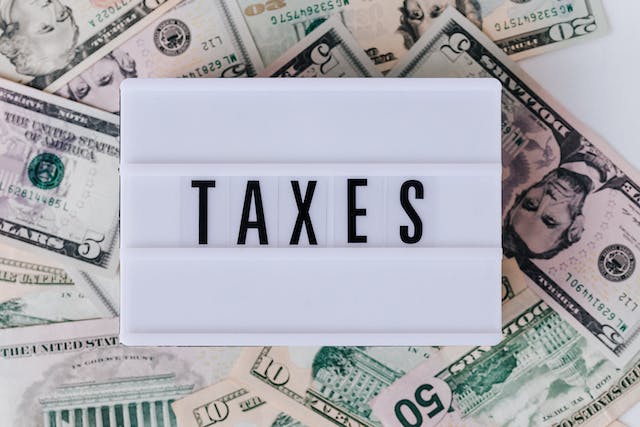.png)
Key Takeaways
- Maximize Deductions: Landlords can reduce taxable income by claiming deductions like mortgage interest (up to $750,000), property taxes (up to $10,000), repairs, insurance premiums, and energy-efficient upgrades, ensuring compliance with IRS guidelines.
- Leverage Benefits: Explore government programs on USA.gov for additional support, especially if facing challenges like tenant turnover or personal circumstances such as disability or retirement.
- Stay Organized: Keep detailed, accurate records of rental agreements, expenses, and receipts to streamline tax filing and maximize savings—both long-term (e.g., mortgage documents) and short-term (e.g., repair receipts).
- File Accurately: Use the correct IRS forms—Schedule E for sole owners, Form 8825 for business entities—to avoid penalties, and consider professional help to ensure precision.
- Simplify with Experts: Partner with a property management company like Foothills Properties to handle record-keeping, compliance, and deductions, freeing up time and reducing tax season stress.
As a rental property owner, you have a federal tax responsibility to report your tax returns every year.
Now, filing taxes can be intimidating, whether you’re just starting out or are a seasoned landlord. After all, mistakes can be costly to your bottom line. For example, misreporting rental income can lead to tax evasion charges, fines, and legal action.
In this article, Foothills Properties will guide you through essential tax strategies to maximize your savings as a landlord.
5 Tax Season Tips for Landlords
Claim a Variety of Tax Benefits
As a landlord, you can claim various deductions during your subsequent tax filing with the IRS. A tax deduction is a reduction in your tax obligation from your gross rental income.
For rental property owners, tax deductions are usually from costs associated with the owning, purchasing, and maintaining a property. The following are some of the top tax deductions you can take advantage of.
Mortgage Interest
Do you have a mortgage on the property? If so, the interest payments on the mortgage are tax deductible. You can deduct interest on up to $750,000 of mortgage debt. This deduction can especially be helpful during the initial months, where the interest payments can be quite significant.
Property Taxes
You can deduct some of the taxes you pay on your properties. Including, investment property, primary residence, vacation home, and even undeveloped land. Note, however, that the total deductions cannot exceed $10,000 for state and local taxes.

Home Office
Do you use a section of your home exclusively for conducting business? If you do, you may be able to deduct the cost of running that section of your home.
Energy-Efficient Upgrades
Have you made some energy-efficient upgrades to your rental property? If so, you may be eligible for some tax deductions of up to $2,000, depending on the specific upgrades.
Insurance Premiums
You can deduct the cost of the landlord insurance premiums you pay. You cannot, however, make deductions for the insurance premiums you pay for your primary residence.
Repairs & Maintenance
These are also tax deductible, as long as they are necessary expenses meant to keep the property in good condition. Upgrades meant to add value to the property don’t qualify.
Examples of improvements that wouldn’t qualify as per the IRS include adding a bathroom or patio, installing a new roof or security system, or installing new flooring or wall-to-wall carpeting.
Take Advantage of Government Benefits
The impact of the pandemic is still being felt, especially among small, independent landlords. Tenant turnover, rental prices, and evictions still remain unpredictable.
Luckily, as a landlord, you may be able to qualify for certain benefits under USA.gov. Including, if you’re living with a disability or illness, dealing with the death of a loved one, or approaching retirement.
Maintain Accurate Records
To be a successful landlord, you need to have a certain skill set. Among these is being able to keep an accurate record of important documents.

Keeping accurate and organized tax records can enable you to maximize tax deductions. This is because keeping organized records can help you to accurately track all deductible expenses. Including:
Property taxes
Mortgage interest
Insurance
Repairs and maintenance
Property management fees
So, what kind of records should you keep organized? The records to keep organized should include the following.
Property permits
Relevant legal documents
Mortgage documents
Previous tax records
Insurance policies
Business entity records
Don’t forget about other short-term records, too. These are documents especially related to your rental income and operational costs. They can include the following.
Cost of advertising the unit
Mortgage interest
Legal or professional fees
Rent payment receipts
Utility costs
Business credit cards
Receipts for repairs
Admittedly, keeping such documents tidy can be quite the work, especially if you’re managing the property on your own. But, it can be worth the effort when it comes to maximizing tax savings.
File Property Taxes Accurately
Filing taxes accurately is key for avoiding penalties and ensuring compliance with tax laws. As already mentioned, mistakes during the tax season can result in serious penalties.
That’s why savvy landlords opt for reliable and professional property management services.
With that in mind, the process of filing taxes will depend on the property ownership status. If you are the sole property owner, you’ll need to use the IRS Schedule E, Supplemental Income and Loss form to do your reporting.

If the property ownership is between multiple investors, each investor will need to do the filing individually, using Schedule E.
For rental investments owned through a business entity, you’ll need to use IRS Form 8825.
Hire a Property Management Company
Managing your property doesn’t have to be stressful and time-consuming. Working with a reputable property management company can help free up your time and save you money.
During the tax season, you could rely on their years of experience to help you maximize your tax savings. They could assist you:
Keep detailed financial records
Provide organized documentation of all relevant financial transactions
Ensure you maximize your tax deductions
Ensure legal compliance by staying up to date on law changes
Additionally, you could also count on a good property manager to help you handle other landlording aspects as well. Including, screening prospective tenants, marketing the property, determining the optimum rent amount, and collecting rent.
Conclusion
There you have it – everything you need to know when it comes to the tax season. Now you have important basics that can ensure you maximize your tax savings as much as possible.
For expert help in this regard or any other aspect of property management, look no further than Foothills Properties. We have all the staff and systems to support all your needs. Get in touch to learn more!








